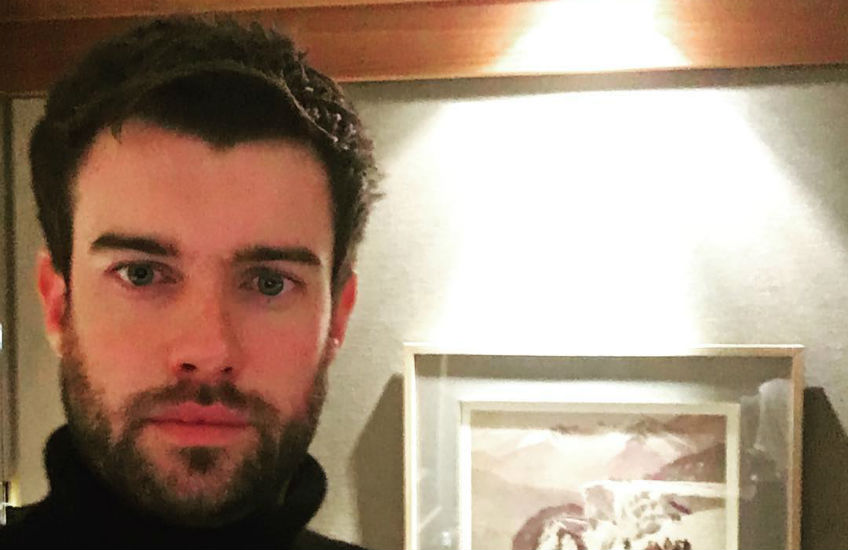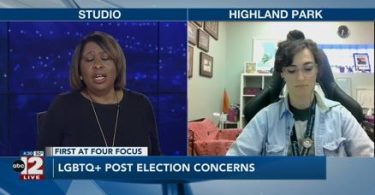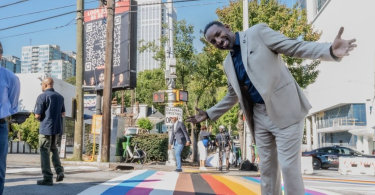The casting of straight actor Jack Whitehall as Disney’s first openly gay character has stirred up a controversy. But why?
Is it because his character sounds like the worst possible combo of all gay clichés – ‘hugely effete, very camp and very funny’ – or because Whitehall is a cisgender man who likes women?
Jack Whitehall. | Photo: @jackwhitehall/Instagram
While to me the former sounds way more worrying than the latter, many were outraged at the decision to give the Fresh Meat actor a shot.
Undoubtedly, on-screen representation matters. Nonetheless, as a bisexual and a cinema geek, I truly believe it is more important to have plenty of LGB roles than have them played exclusively by gay and bi actors.
Recent research showed that less than 1% of last year’s Hollywood characters were LGBT. That is definitely worse than arguing over who actors are sleeping with in real life and in which way that can affect a performance. Hint: in no way – not if they’re good at their job.
Typecasting is something no actor desires
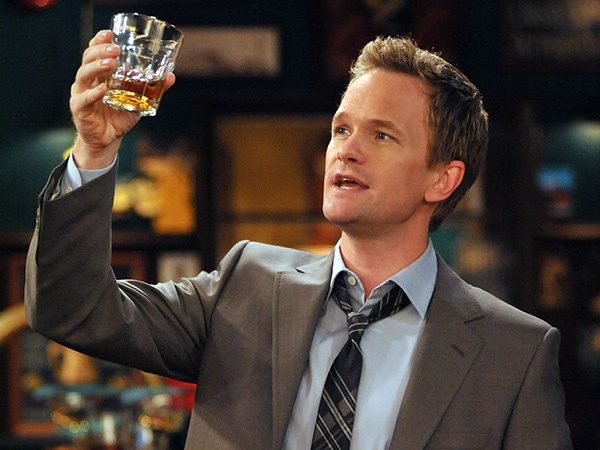
Neil Patrick Harris played player Barney Stinson for nine seasons. | Photo: HIMYM/CBS
Acting is all about being someone else.
Being cast repeatedly as the same character is something no actor desires. Both LGBTI and straight performers will agree on this.
Despite being a commercially successful choice from a studio’s perspective, typecasting feels restrictive and frustrating in so many ways for actors.
They like a good challenge. It is incredibly enriching to be able to play someone completely different from one’s usual self.
As long as there’s some balance in opportunities given to LGB and straight actors, complaining about a casting decision is just vacuous.
Many LGB actors have, in fact, played straight roles throughout their careers and did so brilliantly. In the same way, many straight actors gave amazing performances in LGB roles.
Furthermore, playing gay and bi might help straight people become better allies. Stepping into someone else’s shoes could be a great way to understand their journey. Some might even have an epiphany about their own sexuality!
I might be quite far from landing a Hollywood role, but I trained as an actress during my late teen years.
Acting bends societal norms like nothing else. While I still identified as straight, acting made me realize I was into women, too. I don’t think that it would have been possible if I chose to stick to straight roles.
Trans roles should be played by trans actors
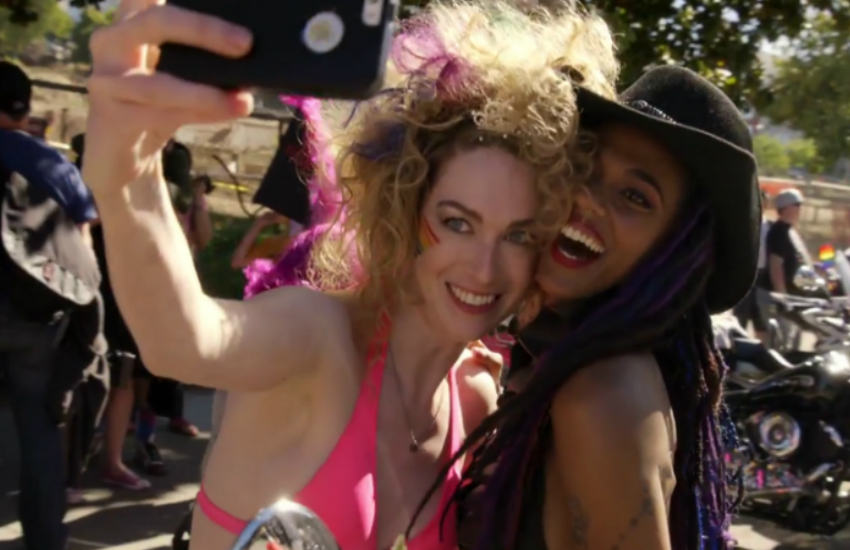
Trans actress Jamie Clayton (left) played Nomi on Sense8. | Photo: Netflix
I wish we were in a place where this whole conversation applied to trans actors as well, but we’re not there yet.
Trans actors are solely cast to play trans, if at all. Having a trans actor playing a cis character is a thing many can’t even envision at the moment.
And some casting directors are to blame for that.
Many have a clear physical image in mind of the actors they want for a role. Somehow, that image never includes trans actors.
While rejection is a huge part of an actor’s life, this can be particularly soul-destroying for trans actors who so often experience rejection in their everyday lives.
We need to normalize the idea of having trans actors play not only trans, but any character. That is why trans roles should be played exclusively by trans people until then.
The importance of LGBTI filmmakers

Léa Seydoux and Adèle Exarchopoulos in a scene of Blue Is The Warmest Colour. | Photo: Wild Bunch
Yes, straight people can make terrible LGBTI movies.
Blue Is The Warmest Colour by Abdellatif Kechiche features one of the most inauthentic lesbian sex scenes of all times. It’s the stuff of actual cringey nightmares.
Would have it been different if the two protagonists – portrayed by straight Léa Seydoux and Adèle Exarchopoulos – had been played by lesbian or bi artists? Probably not.
We should stop romanticising the actor’s profession. In many cases, and this is especially true in cinema as opposed to theater, an actor is a mere tool in the director’s (and cinematographer and editor’s) hands.
Resilience and adaptability are a movie actor’s best qualities as they need to adjust to the director’s requests in a really short time. So, if a director is making a movie about an LGBTI character shot through their straight gaze, there is often little any actor can do to change that narrative or viewpoint.
Therefore, it’s crucial to have LGBTI filmmakers and screenwriters work on LGBTI movies. And when that is not possible, having a consultant is key.
All we should care about is the quality of the performance
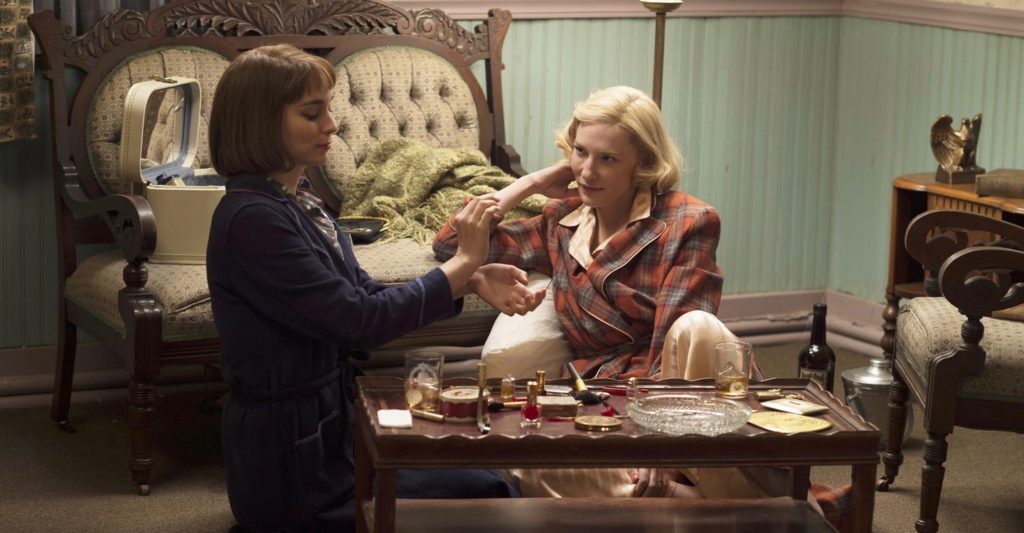
The openly lesbian screenwriter Phyllis Nagy penned the script of Carol. | Photo: StudioCanal
In 2015 I watched Carol, starring reportedly straight actresses Rooney Mara and Cate Blanchett falling in love in 1950s Manhattan.
Sure, director Todd Haynes is openly gay, but I’d say he has very little knowledge of how two women might fall for one another.
The performances felt incredibly true and, while in the theater, I couldn’t care less about the actors’ sexualities.
Did I stop halfway through a love scene to think ‘hey, this feels wrong because you’re both straight’? No. If you did, you might want to reconsider your priorities.
To my mind, there is just one instance in which we’re allowed to complain about a straight actor playing gay or bi.
That is when the actor gives a poor performance. If a straight actor doesn’t do justice to a gay, lesbian or bisexual character, that’s when we have to protest. And righteously so.
However, that usually happens after having watched a movie, not before the movie is even released or, worse, shot.
Read more from Gay Star News:
19 gay, lesbian and bi actors who gave amazing performances in straight roles
Idris Elba says it’s ok for Jack Whitehall to play Disney’s first gay character
This Trump supporter criticizes the new lesbian Batwoman and Twitter is not having it

